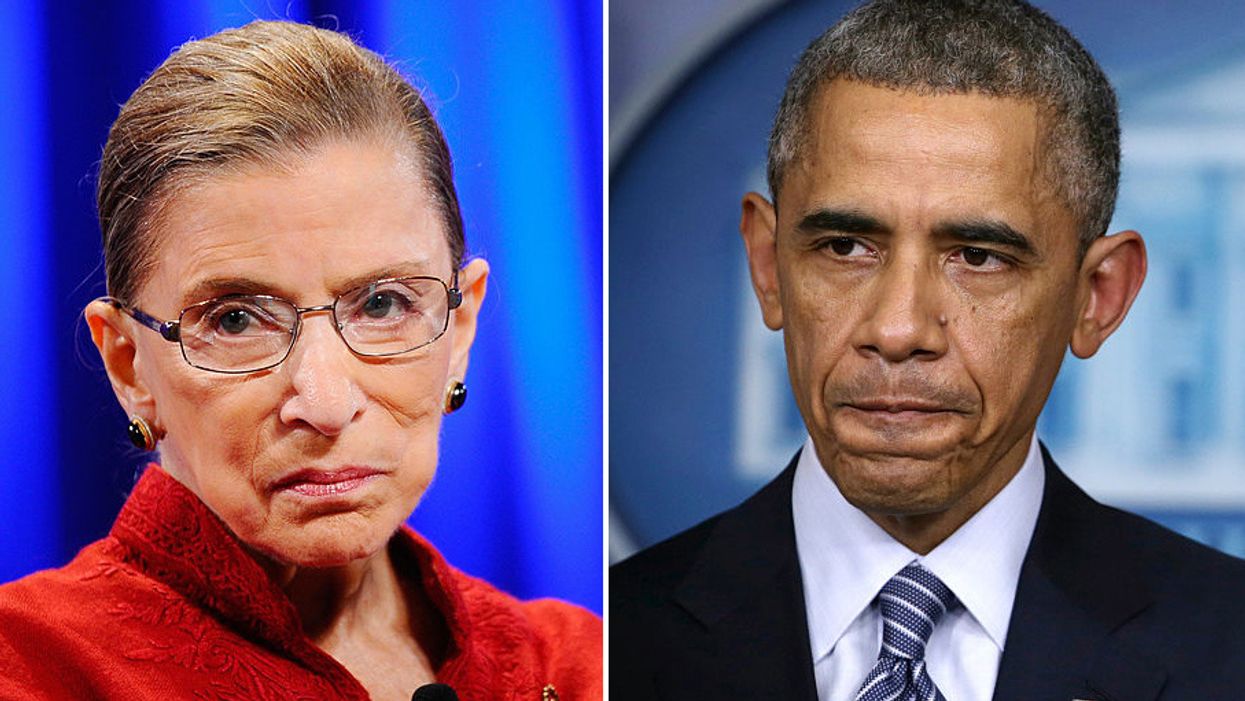
Kevork Djansezian/Getty Images (left), Alex Wong/Getty Images (right)

Turns out, Obama was right to worry
Former President Barack Obama attempted to persuade the late Justice Ruth Bader Ginsburg to retire prior to his presidential tenure ending, according to a new report.
The New York Times reported that Obama privately met with Ginsburg in July 2013 in an effort to curry favor with the Supreme Court justice, with the hopes of setting the foundation to Ginsburg's retirement.
According to the Times, the looming 2014 midterm election is what jolted Obama into action.
From the Times:
Mr. Obama had asked his White House counsel, Kathryn Ruemmler, to set up the lunch so he could build a closer rapport with the justice, according to two people briefed on the conversation. Treading cautiously, he did not directly bring up the subject of retirement to Justice Ginsburg, at 80 the Supreme Court's oldest member and a two-time cancer patient.
He did, however, raise the looming 2014 midterm elections and how Democrats might lose control of the Senate. Implicit in that conversation was the concern motivating his lunch invitation — the possibility that if the Senate flipped, he would lose a chance to appoint a younger, liberal judge who could hold on to the seat for decades.
But the effort did not work, just as an earlier attempt by Senator Patrick Leahy, the Vermont Democrat who was then Judiciary Committee chairman, had failed. Justice Ginsburg left Mr. Obama with the clear impression that she was committed to continuing her work on the court, according to those briefed.
Securing Ginsburg's retirement would have allowed Obama to appoint his third Supreme Court justice, a likely left-leaning jurist who would have sat on the court for decades.
Unfortunately for Democrats, Obama's political instincts were correct. Democrats lost their Senate majority in the 2014 midterm election, preventing Obama from filling the Supreme Court vacancy left by Antonin Scalia's sudden death in February 2016. That electoral loss, coupled with Ginsburg's refusal to retire, means Obama's legacy on the federal judiciary will be overshadowed by Trump's.
In fact, Trump has already had two Supreme Court nominees confirmed to the high court, and he is widely expected to announce his third nominee on Saturday: Amy Coney Barrett, a conservative judge on the 7th Circuit Court of Appeals.
Barrett's confirmation is almost guaranteed as Senate Majority Mitch McConnell has already announced he has secured the votes necessary to confirm whoever Trump nominates.
If Barrett is, in fact, Trump's nominee, and if she is confirmed to the high court, Trump's presidency will have reshaped the Supreme Court for decades — and he still has potentially four more years to further that legacy.